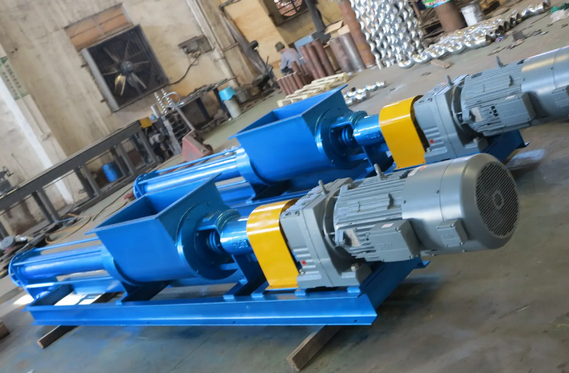Selection of single screw pump for sewage treatment project
In sewage treatment projects, the selection of single screw pumps is a key step, which directly affects the operating efficiency, performance and maintenance cost of the equipment. The following are the selection points considered from multiple aspects:
1. Understand the working conditions
Medium characteristics:
Viscosity: The media involved in sewage treatment may include various sewage, sludge, mud, etc., with different viscosities. For high-viscosity media, it is necessary to select a pump type that can be transported stably.
Particle size: The medium may contain particles of different sizes, and it is necessary to ensure that the pump can handle these particles without clogging.
Temperature: The temperature of the medium is also a factor to be considered when selecting, because high temperature may affect the performance and life of the pump.
Operating conditions:
Maximum working pressure: Determine the maximum working pressure that the pump needs to withstand according to the needs of the sewage treatment system.
Maximum delivery volume: According to the amount of sewage that the system needs to treat, select the appropriate pump type to meet the delivery needs.
Maximum suction depth: If the pump needs to suck the medium from a deeper container, it is necessary to ensure that the suction performance of the pump can meet the requirements.

2. Determine the performance parameters of the pump
Pressure:
The output pressure of the single screw pump is determined according to the number of bushing stages (i.e. the number of leads of the bushing). Generally speaking, the working pressure of the 1st stage pump is 0.6 MPa, the 2nd stage pump is 1.2 MPa, and so on. Select the appropriate number of stages according to actual needs.
Speed:
The choice of speed depends on the viscosity and abrasiveness of the medium. For highly viscous or abrasive media, a lower speed should be selected to extend the service life of the pump.
Flow:
Select the appropriate pump type according to the system's demand for flow. It should be noted that the actual flow of the pump may be affected by factors such as medium viscosity and temperature.
3. Consider the structure and material of the pump
Structure:
The single screw pump is mainly composed of stators, rotors, bearings and other components. When selecting, it is necessary to consider whether the structure of the pump is suitable for the application scenario of sewage treatment.
Material:
Considering the corrosive media that may be encountered in sewage treatment, it is necessary to select corrosion-resistant materials to manufacture the key components of the pump. For example, the stator bushing can choose materials with good corrosion resistance such as nitrile rubber, EPDM rubber or fluororubber.
4. Other factors
Maintenance and maintenance:
When selecting a pump, you need to consider the difficulty of pump maintenance and maintenance. Choosing a pump that is easy to maintain can reduce the cost of later maintenance.
Cost:
On the premise of meeting performance requirements, comprehensively consider factors such as pump price, operating cost and maintenance cost to make a selection.
5. Specific selection steps
Clear requirements:
According to the specific requirements of the sewage treatment system, clarify the working pressure, flow rate, medium characteristics and other parameters of the pump.
Review samples:
Review samples or technical manuals of relevant pump types to understand the performance parameters and applicable scope of different pump types.
Comparison selection:
Compare the performance parameters and price of different pump types according to needs, and select the most suitable pump type.
Consult experts:
If necessary, you can consult experts or technicians in related fields to obtain more professional advice.
www.gt-pump.com




